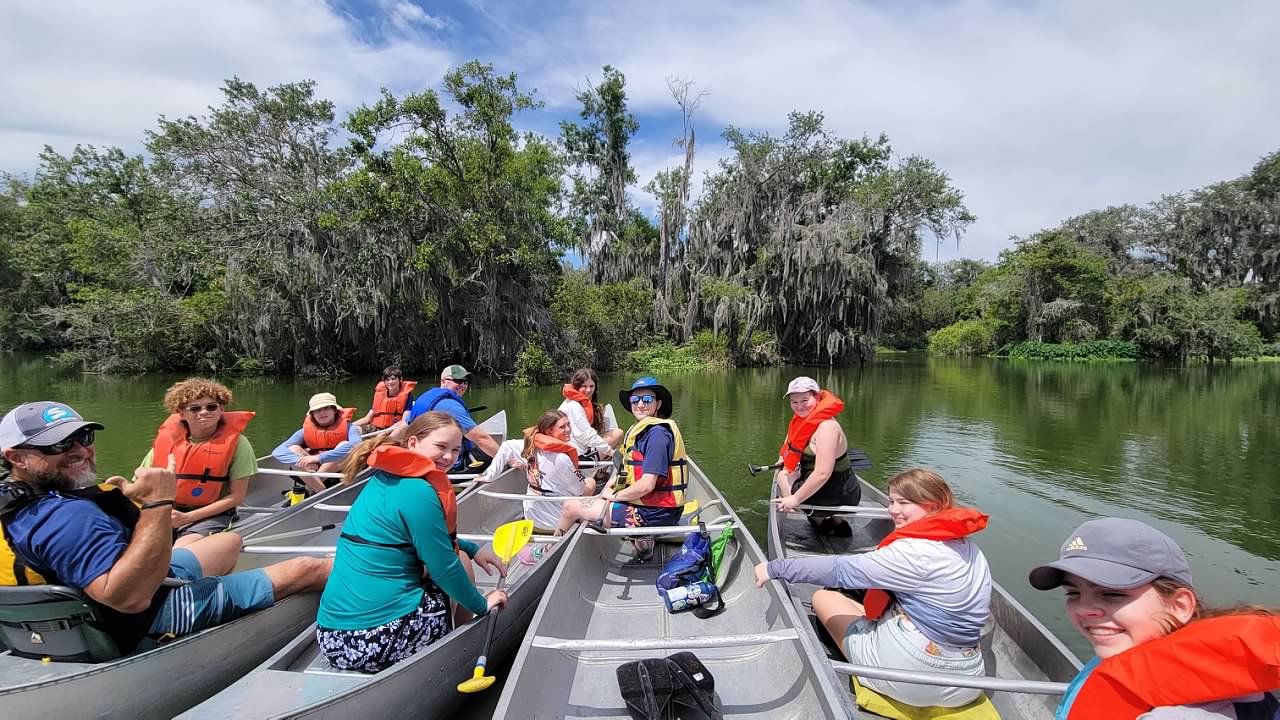The 3-day experience of a Pathfinder program is always magical. As a facilitator, I loved the job because I got to experience so many different people working through similar challenges: communication, collaboration, resilience and grit, overcoming fear, listening to intuition and physical needs, sharing emotions appropriately; in other words, How To Human. My time on the other side (chaperone instead of facilitator) was particularly wonderful because I have the privilege of spending months (or years) with this same group of kids, rather than just a couple of days, and the challenges and successes are that much more rewarding.
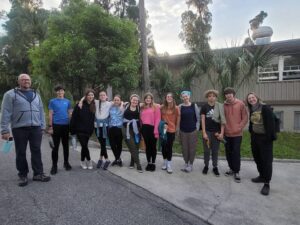
At Indi-ED, we work within the same mindset and operating systems that are present at Pathfinder, so there was no adjustment period or learning curve, we were able to hit the ground running. I heard from the facilitators that “this group moves through the challenges a lot more quickly” because their collaboration skills were pretty strong out of the gate. I’ve thought of our cohort as a family unit, especially as the kids interact with each other like they’re cousins that grew up together (a little nicer than siblings in my opinion), and that vibe was felt by the facilitators as the group worked through “clear and kind” communication challenges. We do have a group of leaders, but that leadership style varies drastically, and all of them have good ideas, so it was most interesting to see how they would alternate through roles naturally.
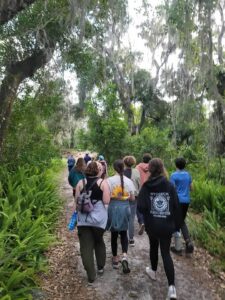
Communication is a life-long practice for novices and the pros, and so I think it is perfectly normal that the cohort had some specific areas for growth: how to make space for others to share ideas, especially people who are more quiet or reserved or prefer to observe first & then share after processing ; how to take a step back so that others can speak / not having to speak at every opportunity ; how to disagree without shutting someone down ; how to communicate what went wrong without placing blame ; how to discuss multiple strategies without ego (“my plan” or “my idea”) getting in the way ; how to admit weaknesses, faults, “I was wrong”, without feeling ashamed or shaming others. These are typical challenges that all groups face when working together throughout all levels of life.
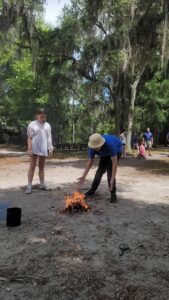
I am so impressed with the positive communication that I saw on the trip: students checked in with each other about both physical and emotional safety and asked for consent ; they made sure that people were not left out or isolated ; sharing emotions and preferences without making each other feel weird or uncomfortable (vulnerability met with acceptance) ; diversity in partnerships ; shared labor and accountability ; leadership without bossy-ness ; an ability to be silly, goofy, authentic without discomfort or shame ; making space for everyone to share ; consistent positivity, even when it was hard ; support & encouragement of each other despite being hot / hungry / tired / in pain / out of the comfort zone ; So Much Appreciation!
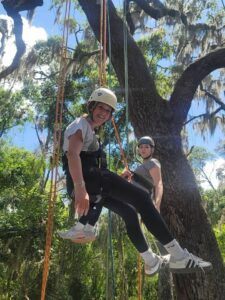
The closing ceremony of a Pathfinder program is an appreciation activity that is similar to our “accolades” portion of morning and afternoon meeting: participants are given a carabiner to clip together while they share their appreciation, then they swap carabiners and then clip together with the next person for continued sharing. This closing activity is always a touching part of a program, but our time was incredibly heartwarming and tear-inducing. I cried, students cried, chaps and facilitators cried, all in response to the incredible and genuine words of recognition and gratitude. I particularly enjoyed seeing the three boys clipped together & sharing thoughts, feelings, reflections with each other in a fun and sincere way, and our group clip-together with all students and adults, which resulted in some pretty cute photos.
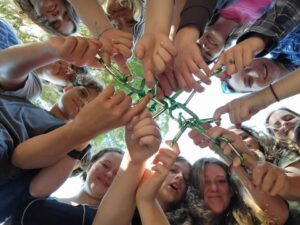
Other very touching moments included the matching pjs, Casey & Jacquez’s concern for Mason when their boat flipped (because Mason was asleep in the boat when it happened), everyone’s support for each other when tree climbing, Nina’s support during the rope swinging when she asked the group for their consent to grab them so that they landed on their “island” safely, the solo sit / letter writing / letting go of something process that they all took seriously, my morning wake-up sing along, hearing the kids talk about definite versus indefinite articles (unprompted) and the “aha!” moment regarding the electoral college in the van ride post-canoeing (proud teacher tears), cleaning up after meals without being asked(!), their consistent and genuine appreciation of the facilitators each day, and the pure joy (and total exhaustion) of connecting with themselves, each other, and nature.
I have always found it worthwhile to take time out of the chaos and workload of everyday life to spend a little time outdoors. It feels so much easier to be present while canoeing on the lake and counting alligators (at least 12 were spotted on Lake Medard that day), or looking for nature’s replication of Lime Green (a lot harder than I thought), or building a fire together. Connections feel so much stronger when we share life’s little moments together in addition to the group work and collaboration required at work and school. Life is much more fun when we can get through it together as friends and chosen-family. More than outdoor skills or tools for more effective communication, our Pathfinder program gave us memories and friendships that will last a lifetime, and I am so very grateful.


